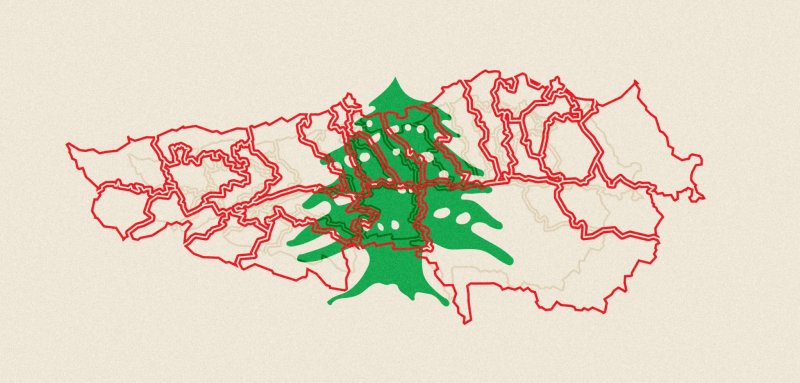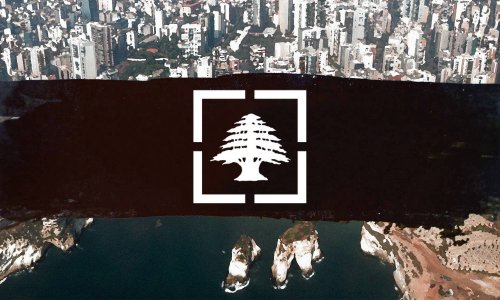Recently, there have been talks about transitioning into a Federal model of governance.
Whilst this proposition might carry some potential to putting an end to Lebanon’s ideological divide, it might risk exacerbating existing tensions and divisions, which are antithetical to the formation of a strong nation. The Lebanese are divided on a number of issues, there is hardly a set of ideas that the vast majority can agree on. Some are in favor of secularism while others call for its abolition, some call for a strong state with the support of a strong army while others believe that the strength of the state derives from their military apparatus that runs in parallel to the state. There is a promising new generation - however - that no longer wants to live in the vestiges of the past or walk down their parents path - one that was at the forefront of the 17th of October revolt.
Meanwhile, there’s a similar generation that is unable to break away from a system that keeps regenerating itself in a vicious cycle of indoctrination.
Let’s think of Federalism in the context of Hezbollah. How would this system work when the foreign policy agenda and national security dossier is being controlled by an armed faction within the state
In the midst of a strong political and cultural divide, a federal form of governance seems to provide the answer so that different social groups can enjoy a certain degree of autonomy without being in constant fear of encroachment by “the other”. Let’s think of Federalism in the context of Hezbollah. How would this system work when the foreign policy agenda and national security dossier is being controlled by an armed faction within the state. Absent a central government capable of taking action on matters of national security without being subjected to any form of blackmail - political or otherwise- there’s very little any alternative form of governance can do. Hezbollah’s armed wing constitutes the single biggest barrier against a potential transition to a fully-fledged functioning state. Dividing Lebanon up into swathes of land would only accentuate these differences so long as the national identity is informed by the interests of minorities. And while it would grant like-minded groups of people the ability to run their own communities or mini-states as they see fit, this degree of independence will quickly be eroded by an armed faction with the power to override any form of independence the moment it clashes with its overarching goals. Even in a more ideal situation where power is derived through an equitable exercise of power within legitimate political arenas and state institutions, Federalism will fail without the existence of a strong national identity - one that puts forth national interest before sectarian and political divides. Absent a sense of nationalism that puts one’s country before any ethnic or religious affiliations, there’s little hope for an equitable form of governance, particularly within a Federal system.
Absent what constitutes the core foundations of a nation where accountability runs at the core, the question of what form of governance salvages Lebanon becomes a non-starter. Time we rid ourselves of the delusions of what Federalism might bring forth
Lebanon’s “peoples” - and I consciously used the word in the plural form - have different perceptions with regards to their national identity and that is not a secret. However, it is alarming to see a free rein for the Za’im cult and an unfettered sectarian loyalty taking precedence over an inclusive form of governance. By then, there’s not much a nation can salvage by retreating into smaller states within a small nation. A fractured national identity would breed more divisions and would further erode a collective sense of citizenship. Being placed in a position where we are forced to iron out our differences is the bane of Lebanon’s coexistence and any talk about breaking this piece up into smaller parts would spell the end of Lebanon as we know it. For those still in favor of a Federalist approach, I would say this solution is only viable if and when peoples give up their own petty interests in support of a strong nation that would then stand tall irrespective of a particular form of governance and second when we retrieve our national sovereignty where Hezbollah exercises democracy through its political wit and not military power.
“Absent a sense of nationalism that puts one’s country before any ethnic or religious affiliations, there’s little hope for an equitable form of governance, particularly within a Federal system.” Is Lebanon a failed state?
To think that decentralization in any of its forms - Federal or otherwise - might bring an end to what ails the republic is an illusion. Concerns remain over whether an attempt towards decentralization will bring about real change. Decentralization without challenging its consociationalist nature, risks having more of the same. Lebanon would’ve moved from one failing state into several failing states where corruption and nepotism are reproduced across local governments. Amid existing corruption and power imbalances, decentralization might instead risk exacerbating regional inequalities. An equal redistribution of revenues precedes any thought of overhauling the system or proposing new forms of governance. An accountable state entrenched in a system of checks and balances is the introduction to a new form of equality founded on the premises of equity, inclusivity and diversity.
Challenged by a corrupt state that is overshadowed by a blatant imbalance of powers, with a majority of the public so disillusioned with the system and yet so incapacitated to make a difference, the question then becomes not what the devolution of powers can do, but what they cannot. It is about time we thought about the limitations to any form of governance absent a structural change that starts with rigorous oversight powers and an informed public that stands behind the centralization of foreign policy as well peace and war decision-making. It is a major step towards confidence-building measures that overrides the current strong sentiment for decentralization. Absent what constitutes the core foundations of a nation where accountability runs at the core, the question of what form of governance salvages Lebanon becomes irrelevant to even begin with. Time we rid ourselves of the delusions of what a regime change might behold.
Raseef22 is a not for profit entity. Our focus is on quality journalism. Every contribution to the NasRaseef membership goes directly towards journalism production. We stand independent, not accepting corporate sponsorships, sponsored content or political funding.
Support our mission to keep Raseef22 available to all readers by clicking here!
Interested in writing with us? Check our pitch process here!








